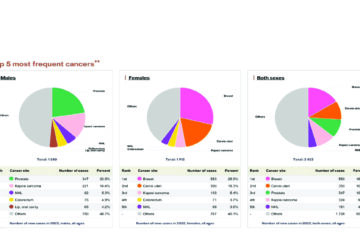Justicia Shipena
Windhoek residents earned about N$1 million in a year and six months selling recyclable waste to the City of Windhoek through its first waste buy-back centre.
According to the municipality, the centre helped divert more than 120 tonnes of waste from landfill sites.
The Windhoek municipality opened its first buyback centre in Katutura in April 2024, located at the corner of Hans-Dietrich Genscher and Bondel streets.
By December last year, residents had received over N$164 000 for waste sold to the centre, which was developed with support from the European Union (EU).
According to city records, at that time, N$61 917 was paid for waste materials such as paper, newspapers, clear plastic, and beverage cans.
Another N$102 159 went to residents who sold nearly 90 000 alcoholic beverage bottles, including 71 397 Tafel, Windhoek and Draught bottles.
During that month, the municipality paid N$16 956 for 5 299 items of clear plastic and N$22 153 for 2 215 beverage cans.
“Through the first waste buy-back centre, we have seen how innovation, community participation, and partnerships can bring tangible results. To date, we have used approximately €50 000 to buy recyclable waste directly from our residents, an initiative that has not only empowered households to earn income from waste but also diverted over 120 tonnes of waste from ending up at the landfill site,” said Windhoek mayor Ndeshihafela Larandja at the groundbreaking ceremony for the second Waste Buy-Back Centre in Okuryangava on Tuesday.
Larandja said the initiative empowers residents while promoting responsible waste management.
Larandja said the success of the first centre, completed in April 2024, made way for the second one.
The municipality contributed just under N$2.6 million, or 56% of the total construction cost.
Larandja said the second centre would rely on partnerships between the city, private enterprises, recyclers and communities.
“By working hand-in-hand with the private sector, we are not only promoting environmental sustainability but also creating green jobs and business opportunities across the waste value chain,” she said.
She expressed optimism about growing private-sector interest in the recycling initiative.
Larandja added that such initiatives improve the city’s cleanliness, reduce pressure on landfills and promote behavioural change.
She also pointed to Windhoek’s rapid population growth, which she says has increased monthly waste volumes.
“We anticipate that the construction of the second waste buy-back centre will contribute greatly to raising awareness and serve as a catalyst for all residents to become part of a beneficial circular economy model,” she said.
Speaking at the same event, EU ambassador to Namibia Ana-Beatriz Martins said the new Okuryangava Centre marks an important step toward sustainable waste management and green growth.
The EU is supporting the initiative through a N$44 million grant to reduce the environmental impact of municipal waste in line with the sustainable development goals (SDGs).
“As Windhoek continues to grow, the management of solid waste is becoming ever more important. Rapid urbanisation comes with pressures on waste systems and the need to address environmental, health and aesthetic challenges,” Martins said.
She said solid waste management is a global concern tied to public health and environmental protection.
Martins added that the first buy-back centre had already created green jobs, supported local entrepreneurs, and taught schools and community groups about recycling.
“Not only has the exchange of recyclable materials for cash generated income for many people, but it has also introduced responsible waste separation in many households,” she said.
Khomas governor Sam Shafiishuna Nujoma Jr described the project as a milestone for environmental sustainability and job creation.
“The waste buy-back centre is a prime example of how these priorities are being translated into action at the local level by promoting waste segregation, recycling, and value addition,” he said.
He said the project also supports women and youth through green job creation.
Nujoma urged residents to see waste as a new opportunity.
“We can turn waste into wealth, create jobs, and move closer to our vision of a sustainable and prosperous Khomas Region,” he said.
Caption
From left to right: Professor Manfred Hinz of the University of Bremen, Windhoek mayor Ndeshihafela Larandja, Khomas governor Sam Nujoma, EU ambassador to Namibia Ana Beatriz Martins and community member Hendrik Kleopas at the groundbreaking ceremony of the second Windhoek waste buy-back centre in Okuryangava.
- Photo: EU




